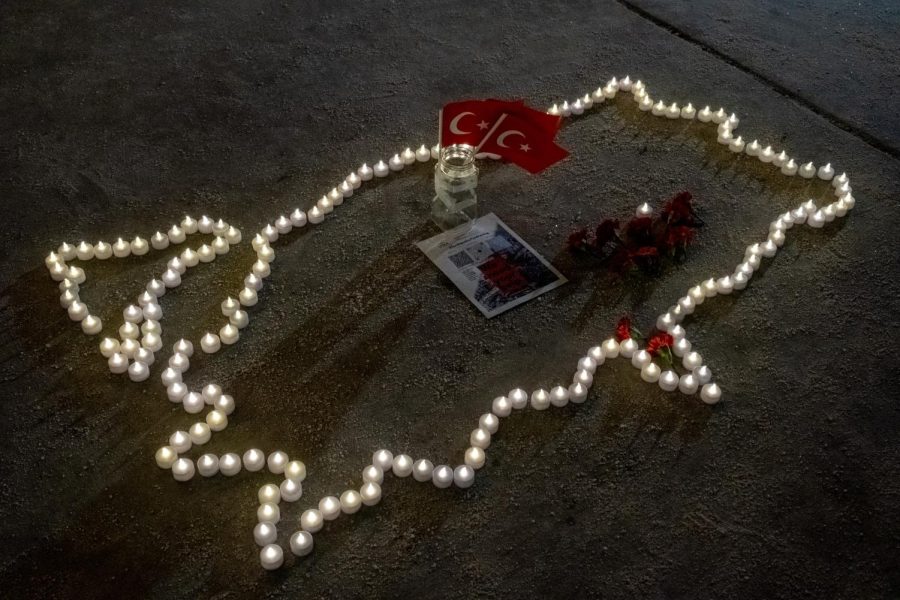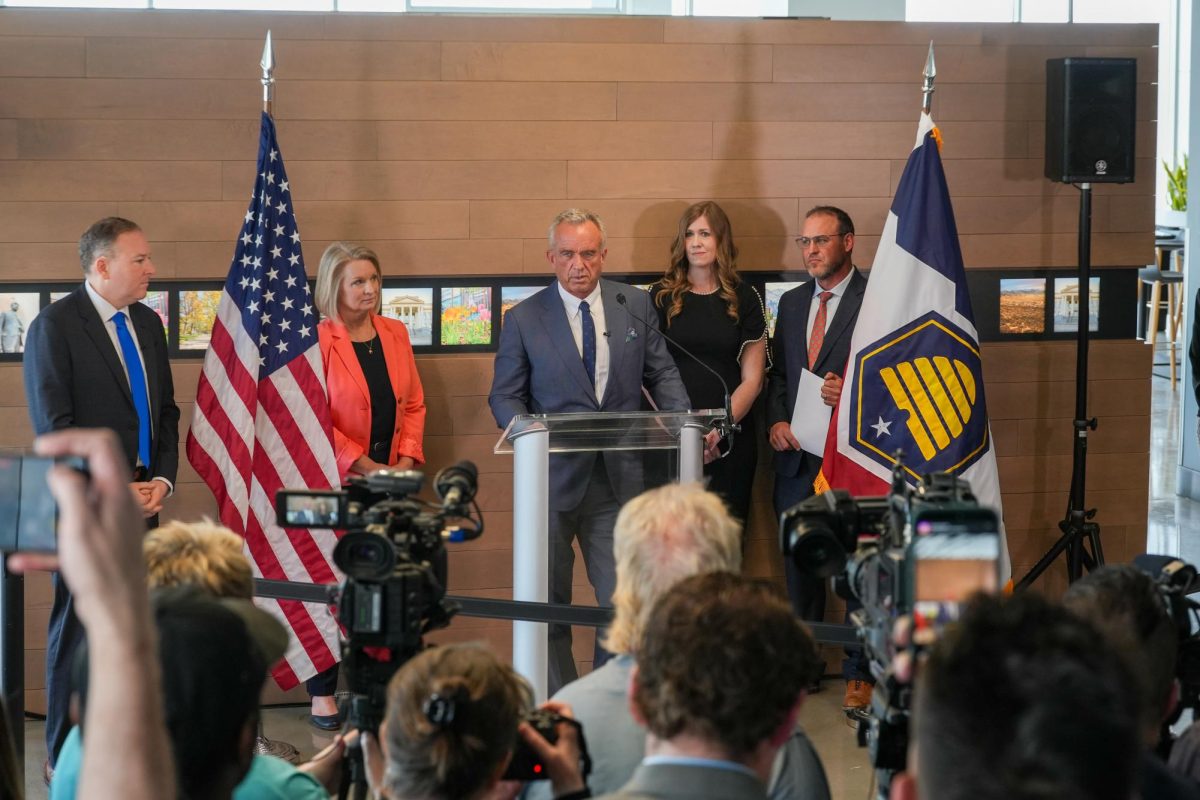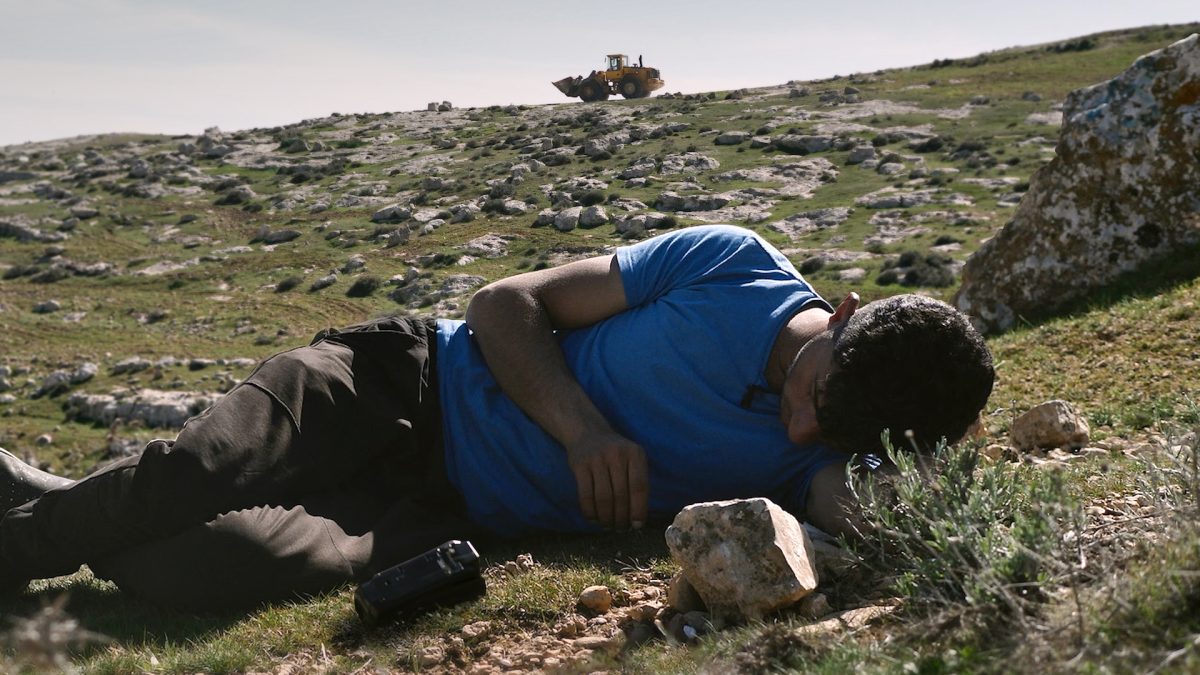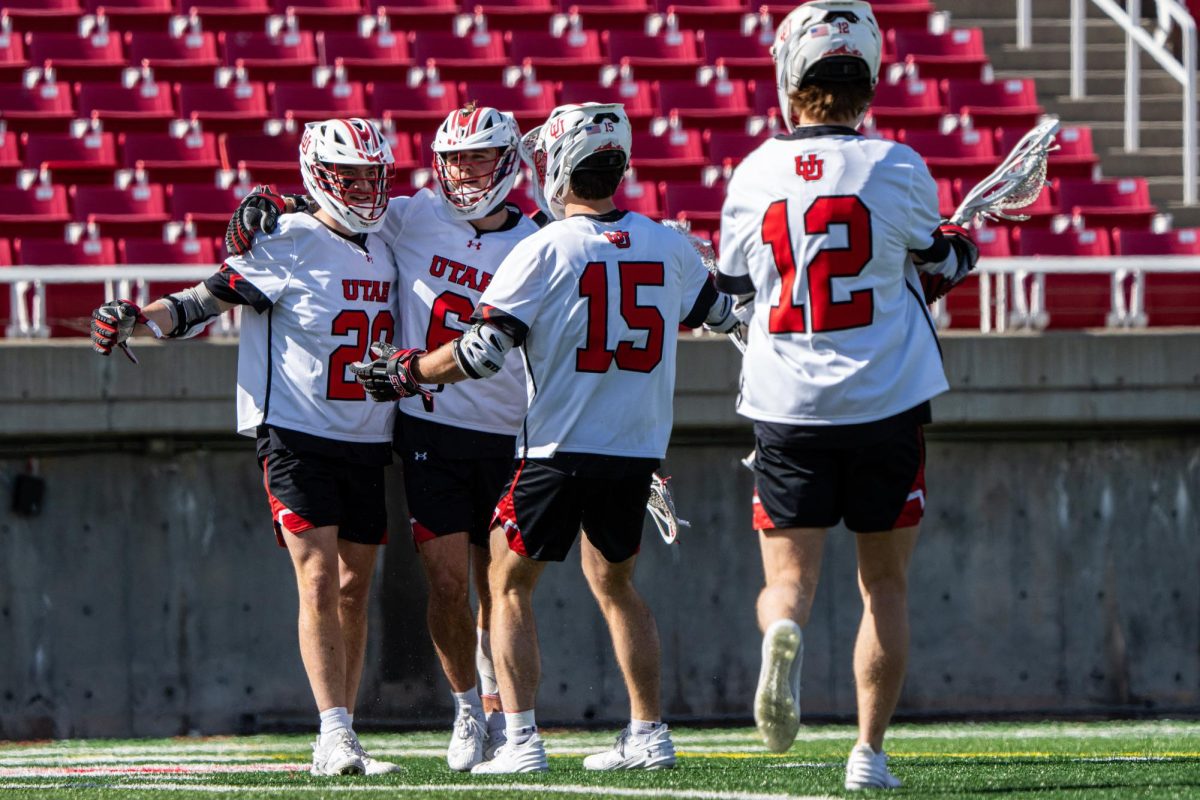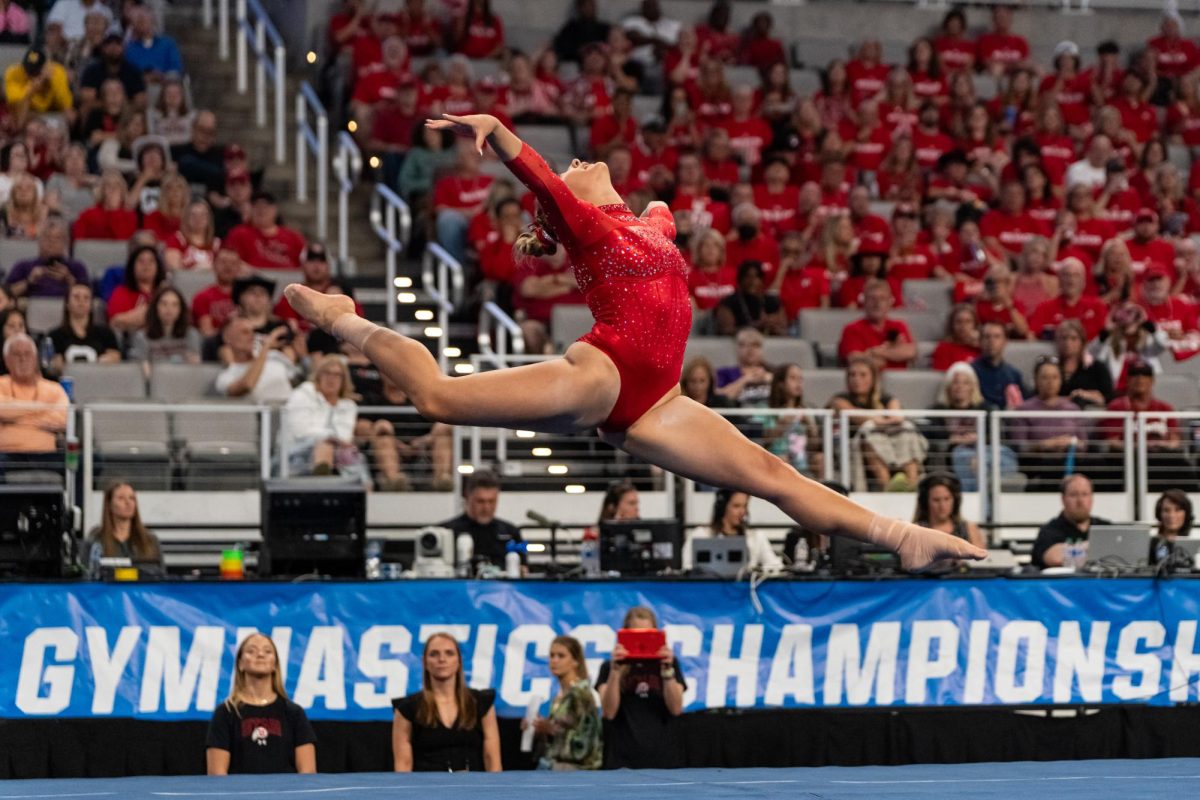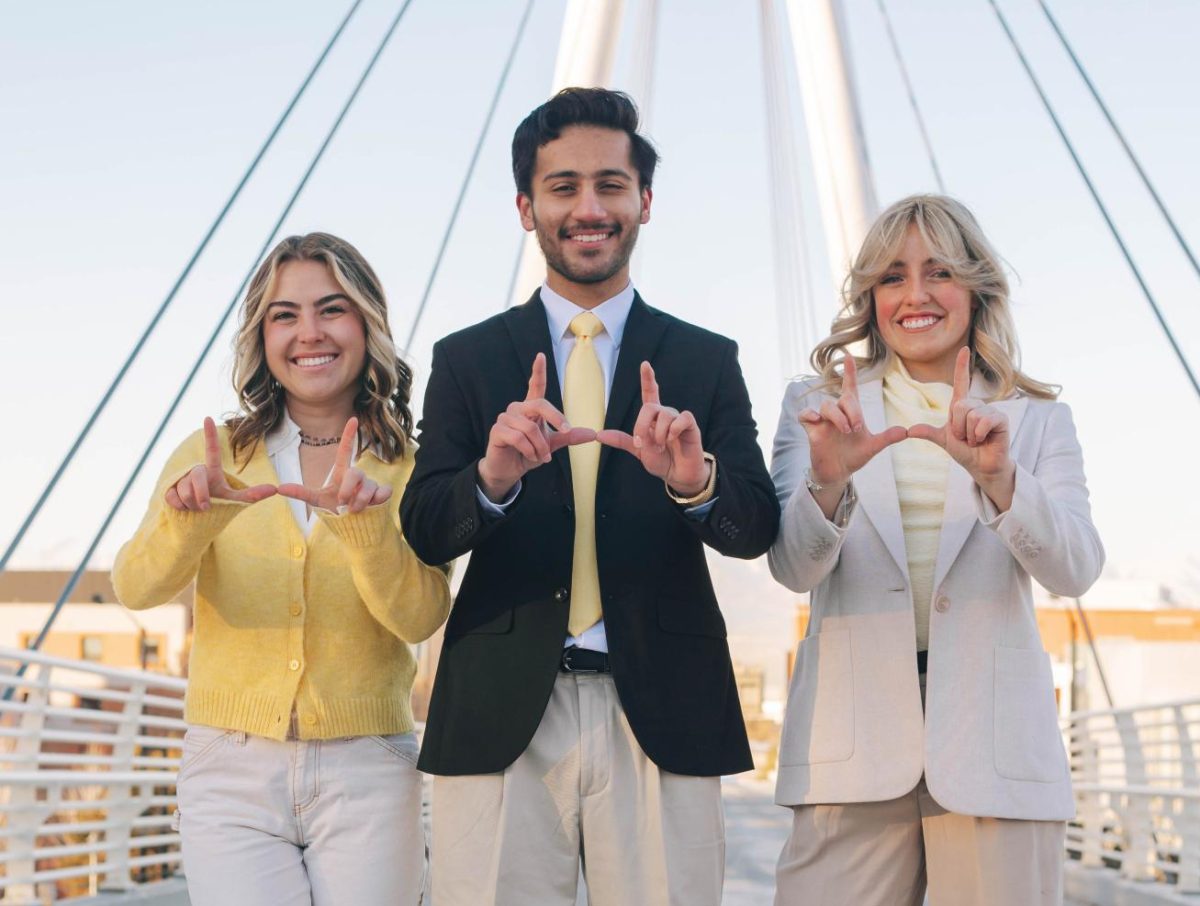Utah Turkish American Association Grieve and Aid Victims of Turkey Earthquake
A candle light vigil placed in front of the Utah State Capitol in Salt Lake City on Saturday, Feb. 25, 2023. (Photo by Marco Lozzi | The Daily Utah Chronicle)
March 8, 2023
At the bottom of the footsteps of the Utah State Capitol on the evening of Saturday, Feb. 25, a candlelit outline of Turkey was displayed.
In the center sat the red and white crescent moon flag. Mingling around it were friends, family and local community members shedding tears of grief and of gratitude in wake of one of the deadliest natural disasters of the 21st century.
On Feb. 6, the regions of southeast Turkey and northwest Syria were shaken by a 7.8 magnitude earthquake. The death toll has surpassed 47,000 people, and it continues to rise. According to World Vision, “reports indicate that there have been over 87,000 injuries and at least 47,000 buildings have been destroyed or damaged.”
In the following weeks, aftershocks have continued to shake the region and create upheaval for local communities and aid workers trying to bring food, water and shelter to affected Turkish people and Syrians.
The Utah Turkish American Association is an organization that works to share and celebrate Turkish culture in Utah by providing a community space for people to convene with one another. Right now, the UTAA is a space for people grieving a wide-scale tragedy to embrace and work to facilitate aid to the country.
UTAA member Reha Toydemir said it’s difficult living so far away from his birthplace during a tragedy like this.
“When something happens, even if you catch the first flight, it takes 24 hours to go home,” said Toydemir, also a Turkish alum of the University of Utah’s human genetics department. “Everybody in the community first thinks, ‘Okay, did anything happen to my immediate family,’ like parents, sibs, cousins, whatever, everybody is first checking with those people and close friends.”
President and founder of the UTAA, Pinar Toydemir, said there are several Turkish American organizations that work hard to help people affected by natural disasters like the earthquake, including Bridge to Turkiye.
The U.S.-based organization works as a liaison between organizations smaller in size like the UTAA and on-the-ground aid organizations in Turkey.
“[Bridge to Turkiye] actually find people on the ground delivering service, whatever service that may be, to the people affected by the earthquake, UTAA is trying to be a part of that and facilitate that,” Reha Toydemir said.
Pinar Toydemir said that it can take more effort to send clothes and blankets instead of just money.
“[Right now] they need toilets so they need to pay for containers,” she said. “It’s a moving target and we’re trying to keep up to date with these moving targets.”
Reha Toydemir said in some cities in Turkey and Syria, the hospitals were affected, preventing the wounded from being serviced right away.
“In some states, the roads collapsed, some villages collapsed,” he said. “So even if somebody was trying to get there, there is no road to get to those areas.”
Pinar Toydemir added that as time goes on, medical help will be in higher demand for people who will need to receive necessary amputations. However, access to the region is often hampered for individual organizations and the Turkish government because of the rubble and natural destruction left by the poor infrastructure.
Ceyda Ural, president of the U’s Turkish Student Association, said this event has been a wake-up call to help spread awareness and provide help as a group.
“With the earthquake and constantly seeing news about it, I was like, ‘Okay we gotta do something, I need to get this club together,’” Ural said. “A lot of things can be overlooked too quickly. I don’t want this earthquake to be one of them just because it’s far away.”
The TSA is an organizational offshoot of the UTAA made up of undergrad and graduate students at the U that plan social and cultural events that share Turkish culture. Currently, they are helping to collect donations and spread awareness of the destruction in Turkey at the U with the UTAA.
“I wanna keep pushing this into people’s faces,” Ural said. “I want everyone to see it.”
Ural added that the natural disaster in southeast Turkey is an opportunity for the “strong, young” Turkish local community that has a dense history of music, food and folklore, but also one that creates an awareness of the tragedy for Utahns here who do not have a direct connection with people suffering in Turkey and Syria.
On UTAA’s website, people can donate to assist in providing aid to those in Turkey and Syria suffering from the effects of this devastation or to learn more about upcoming events.


